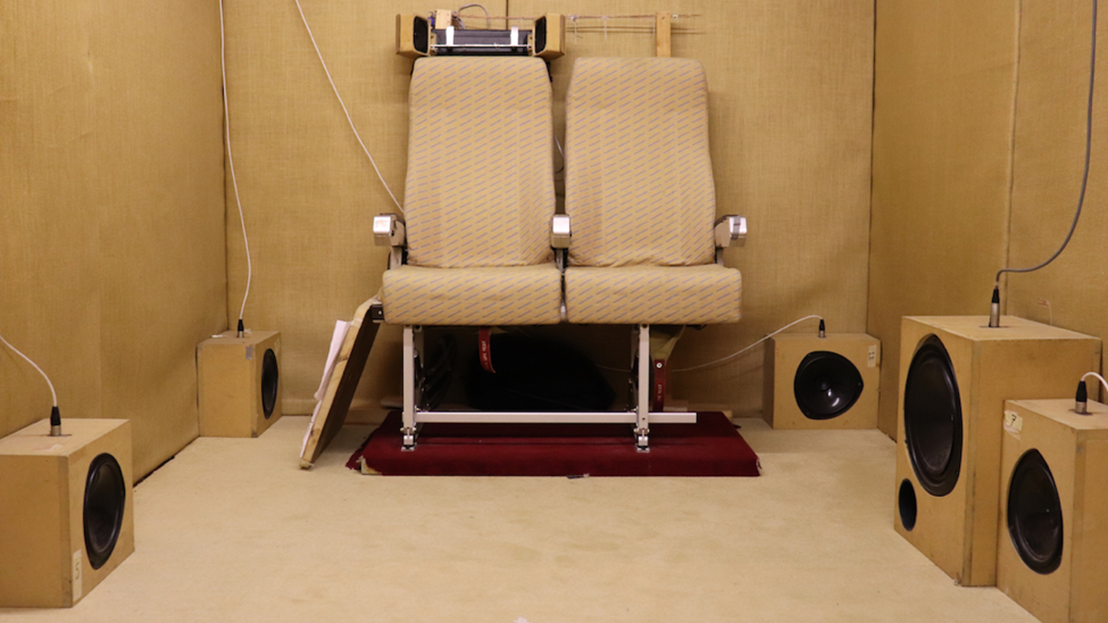In this new research project, UAL researchers position listening as an investigative tool that can augment and transform access to knowledge on large-scale societal and public health challenges such as social exclusion, lung health, dementia and speech recognition. Invested in the production and interpretation of knowledge via sound, Listening Across Disciplines II (LxD II) will also explore how listening can deliver new insights for art, curation, music, urban planning and civil engineering - where sound can reveal hidden potentialities and contribute to our understanding of culture and how we live together.
Funded by the Arts and Humanities Research Council, the project represents a continuation of the 2016-17 network project Listening Across Disciplines, which systematically investigated the potential of listening as a legitimate and reliable methodology for research across the arts and humanities and into science, social science and technology.
LxD aims to establish how listening is capable of making a radical contribution to science and culture and will provide the infrastructure and shared terrain to develop and document, educate and disseminate information, guidelines and policies on listening that can be applied in any disciplinary context.
The research is led by Principal Investigator Dr Salomé Voegelin, CRiSAP, London College of Communication, UAL working with co-investigator Anna Barney, Professor in Biomedical Acoustic Engineering at Southampton University and Dr. Mark Peter Wright, Associate Lecturer, MA Sound Arts and Post-doctoral Research Fellow, London College of Communication UAL. They will work with a network of academics and non-academics from diverse partners including Resonance 104.4FM, Points of Listening, Science + Media Museum Bradford, Urbanidentity, University of Edinburgh, Centre for Analysis of Social Exclusion at LSE (London School of Economics), Arup, and Finetuned.
Dr Salomé Voegelin:
Listening offers an exciting approach that can help us develop new knowledge and innovative insights into how the world is. Specifically this project will enable us to understand the knowledge and insights carried by sound, and how we might be able to build legitimacy and consensus, find application and communicate this knowledge of the invisible.
LxD II is invested in the value of listening as a reliable research method, emphasising for the first time the cross-disciplinary benefit of a sonic turn and providing its theoretical discussions with a shareable vocabulary. It will make a major contribution to studies of sound as well as to the practical application of listening across disciplines. It will be carried out through a framework of five strategically timed phases of investigation, organised through directed interventions with partners from a range of disciplines and professions, to observe and analyse listening, its processes and applications, determining how to establish “listening protocols” that can function as transferable knowledge tools.
The project has partnered up with Resonance FM to broadcast on edited documentation of workshops, interviews and partner visits, allowing listeners to engage with the discussion on listening with the various experts. Public events will be organized in conjunction with Points of Listening, a monthly programme of workshops, activities and discussions with a broad scholarly and public following. Findings will be showcased at the Being Human Festival at The Winchester Science Centre’s science outreach for children, and at the Southampton Science and Engineering Festival, held annually as part of the national Science and Engineering Week. A special issue of the peer reviewed Journal of Sonic Studies will be edited in relation to the project.
Creative Research into Sound Arts Practice (CRiSAP) is a research centre of University of the Arts London dedicated to the exploration of the rich complexities of sound as an artistic practice. Our main aim is to extend the development of the emerging disciplinary field of sound arts and to encourage the broadening and deepening of the discursive context in which sound arts is practised.
Image: Institute of Sound and Vibration Research, University of Southampton

